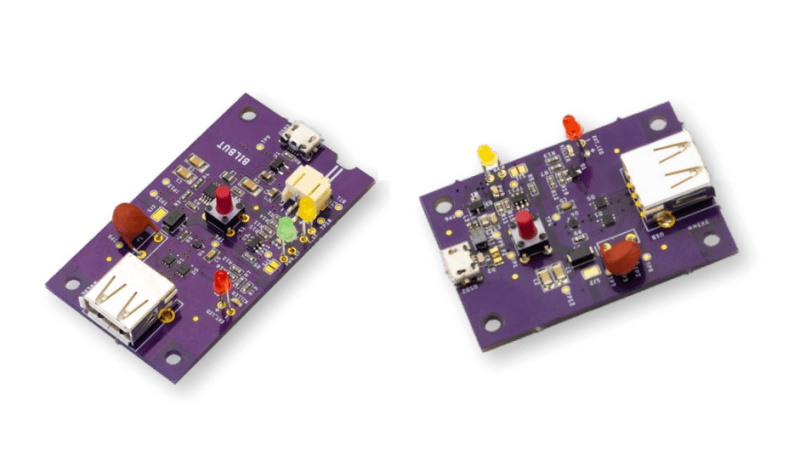USB Killer Detector
on

USB killers are malicious devices disguised as USB flash drives. When plugged into a computer, tablet, or phone USB port, the device will try to destroy the USB port and more. The USB Killer Detector described here lets you identify such pen drives before they can do any harm.
USBKill is a pen-testing USB flash drive that transforms a USB port’s 5 V into about −200 V, leading to the destruction of, for example, a personal computer, laptop, or even a phone. As they have a logo on the outside clearly indicating that they are pen-testing devices that must be handled with care, they do not present a real danger.
More dangerous, however, are the so-called “USB killer” sticks that cannot be distinguished from normal flash drives. They look like any ordinary flash drives, but can cause serious damage to devices they’re plugged into.
My Personal Experience
My father buys many items online. He purchases electronics components, as he is an electronics technician, but he also brings home unnecessary products such as an excess of nuts, bolts, and tools. He has a room at home where I can barely walk.
Some time ago, I had an old movie on my computer that I wanted to watch on the TV, so I was looking for a USB flash drive. As I did not have one at hand, I went to my father’s electronics room and I found one. I connected it to my computer, went around the table, and discovered that the computer had shut off. Only the weak sound that had started just after connecting the flash drive remained.
After realizing that my computer did not turn on anymore, I checked all cables and the mains supply. Everything was working as usual, except my computer, which did not turn on. After a few days of investigation, the cause turned out to be the USB flash drive from my father’s room. It did not have any indications on the outside of what it was. It looked like any other USB stick but was, in fact, a USB killer.
Why?
Like me, you may be wondering why USB killers exist. The answer seems to be mainly along the lines of “just because.” So, my father and I decided to develop a device that can detect USB killers before they do damage to a computer.

Our Solution
A USB killer uses the USB port’s 5 V to generate bursts of about −200 V pulses on the USB data lines. This is a very effective technique for destroying USB ports and more. The USB Killer Detector makes use of a special USB data line protection IC, an NX20P0408 from NXP that flags a fault when something is not right on these pins (Figure 1). The flag signal controls a red LED. If the LED goes on, you should destroy the flash drive you just plugged in.
Additional TVS diodes ensure that the detector itself doesn’t get killed. A PTC provides even more protection by switching off the killer stick if it’s just too dangerous to handle.
USB Killer Detector: Two Versions
We developed two versions of the USB Killer Detector:
- A portable battery-powered version that you can carry anywhere you, as shown in Figure 2. It includes a LiPo battery charger and a boost converter to turn the battery voltage into 5 V for the USB stick.
- An externally powered version because it is difficult to ship LiPo-based batteries and devices that contain them, and we wanted to sell the USB Killer Detector online. It requires a Micro USB cable of providing 5 V (Figure 3). Use a phone charger for power, not your computer.
The design files for both versions of the device can be found at GitHub.

USB Killer: A Final Word
Do you think that the USB Killer stick is an urban legend? Well, think again. In 2019, in the USA, a man was sentenced to 12 months in prison and a $58,471 fine after intentionally destroying 66 computers with a USB Killer at a school in Albany.
The video at link has totaled over 20 million views over the past five years, which means ten thousand views per day, every day. A similar video has been viewed almost two million times over the last two years. And have you ever searched for USB Killer sticks at online retailers? If you do, you will find that they are easy to buy.
USB Killer sticks are real, and you have been warned. If you would like to help me fight USB Killers, join me here. Thanks to my father, Alberto Guzman, for the time we spent together working on developing the device.
Questions About the Article or USB Killer Detector?
Do you have technical questions or comments about his article? Email the author at instant.devices@yahoo.com or contact Elektor at editor@elektor.com.
This article (220549-01) appears in Elektor November/December 2023.


Discussion (0 comments)